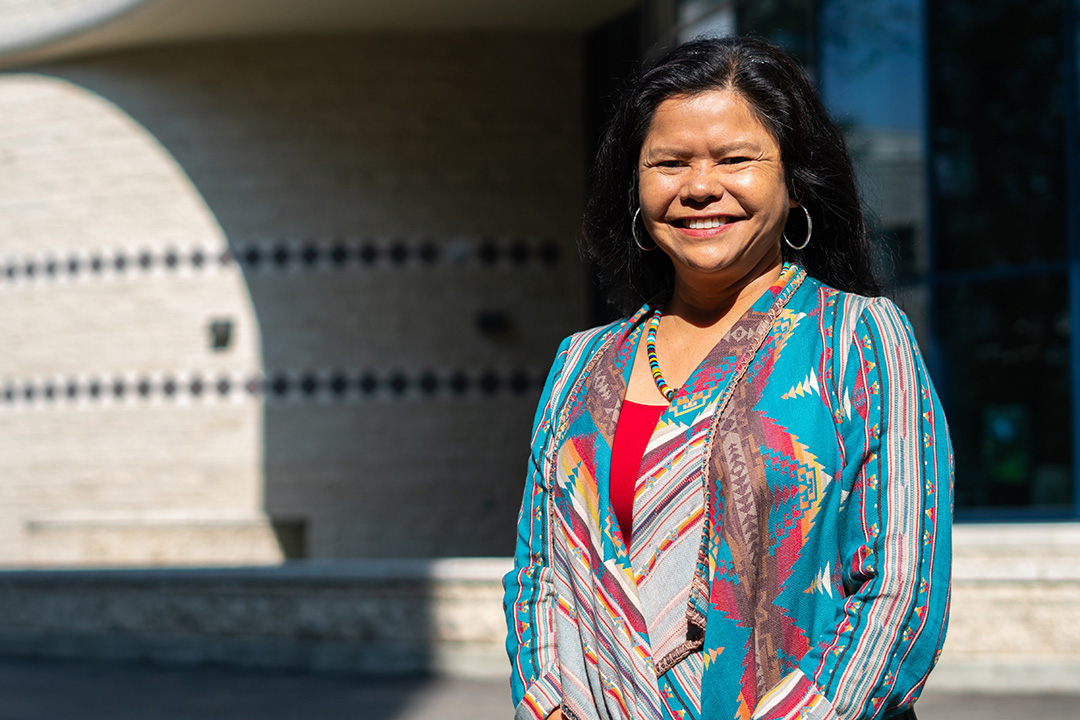
Jacqueline Ottmann of USask believes acknowledging the past is important to lead for the future
Jacqueline Ottmann says that leadership is using the wisdom of ancestors to inform decisions today that can also assist generations to come.
Misiwaykomiguk paypomwayotung, or Jacqueline Ottmann in English, is Anishinaabe (Saulteaux) from Fishing Lake First Nation. The vice-provost of Indigenous engagement and a professor at the University of Saskatchewan, Dr. Ottmann (PhD) was recently featured in a profile in the Globe and Mail to discuss the importance of social justice, leadership, and challenging colonizing forces on both the individual and collective levels.
How did your upbringing shape your sense of purpose?
Growing up, I spent a lot of time with my grandmother, Marjorie Kayseas. She was someone who knew our Saulteaux philosophies and cultural practices deeply, she knew how to identify and use medicinal plants, and she understood the day and night skies – she was very connected to the land. She was also lucky enough to not attend residential school and only spoke our Nakawe language. Later in my life, I learned that was possible because she mostly grew up in the forest hidden away from officials who were responsible for taking children from their families in that era. Fortunately, spending a lot of time with her in my early years allowed me to be really immersed in our language and culture. In that, there was the richness of Indigenous philosophy, perspective and practice.

